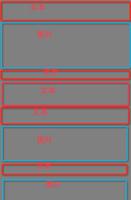main()在C / C ++中应该返回什么?
main()函数的返回值显示程序如何退出。程序的正常退出由零返回值表示。如果代码有错误,故障等,它将以非零值终止。
在C ++语言中,该main()函数可以保留而没有返回值。默认情况下,它将返回零。
这是main()C语言中函数的语法,
int main() { ….
return 0;
}
这是main()C语言中的函数示例,
示例
#include <stdio.h>int main() {
int a = 10;
char b = 'S';
float c = 2.88;
a = a+b;
printf("Implicit conversion from character to integer : %d\n",a);
c = c+a;
printf("Implicit conversion from integer to float : %f\n",c);
return 0;
}
输出结果
Implicit conversion from character to integer : 93Implicit conversion from integer to float : 95.879997
在上面的程序中,main函数具有业务逻辑。存在三个变量a,b和c,其中a保持a和b的太阳。变量c包含c和a的和。主要功能返回0。
a = a+b;printf("Implicit conversion from character to integer : %d\n",a);
c = c+a;
printf("Implicit conversion from integer to float : %f\n",c);
return 0;
以上是 main()在C / C ++中应该返回什么? 的全部内容, 来源链接: utcz.com/z/350240.html




